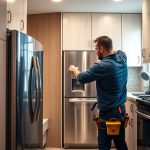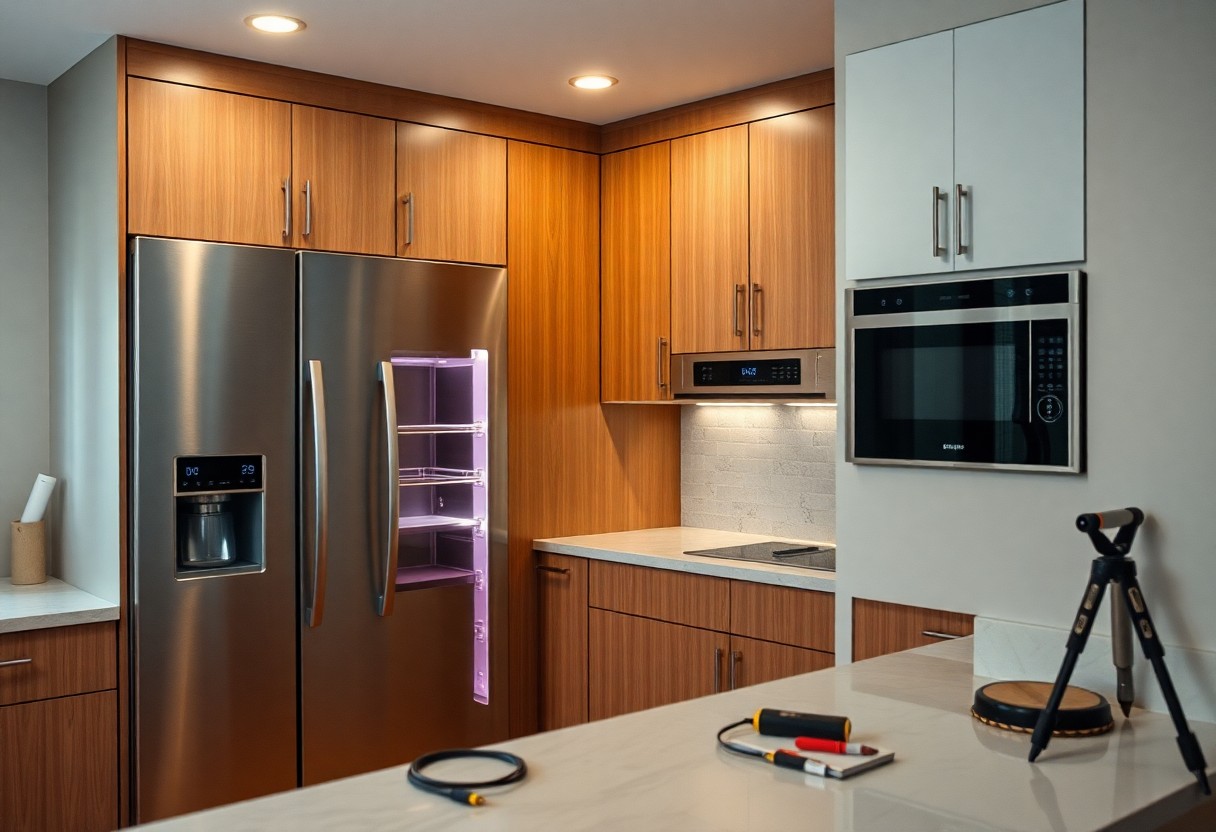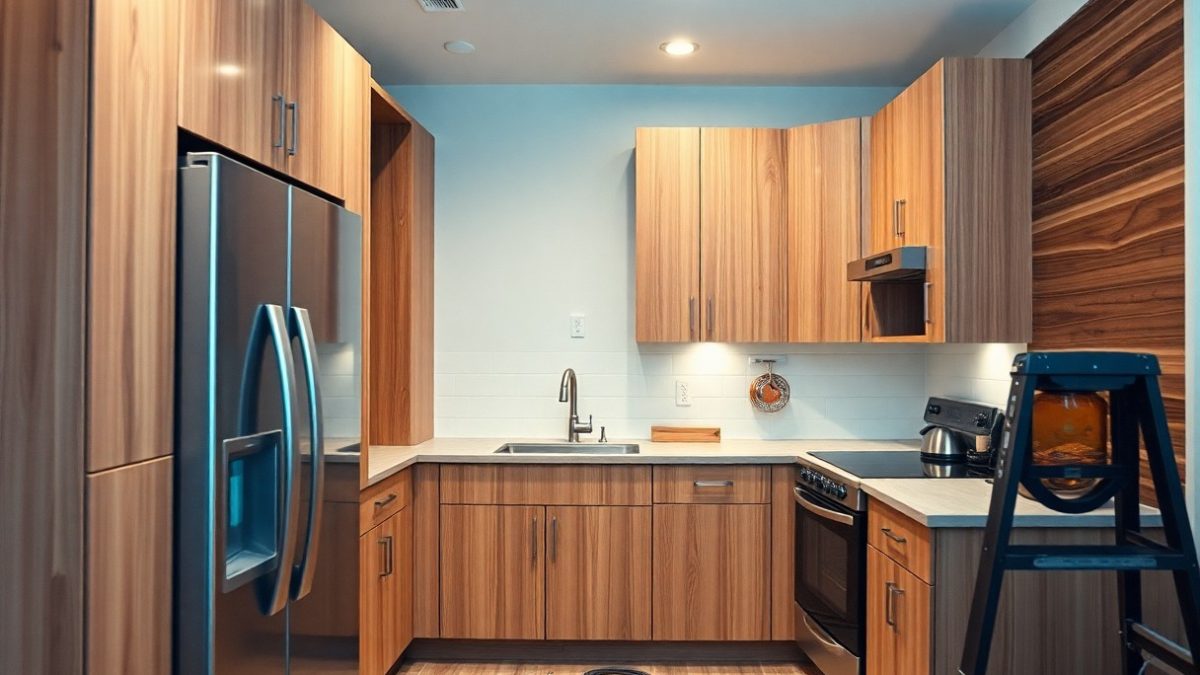
Sure! Here’s A List Of Unique Blog Headline Titles Related To Electrical Appliance Installations, Phrased As Questions –
November 7, 2024
What Subtle Nuances Should Be Acknowledged In Gas Line Inspections Before Installation?
November 11, 2024Most homeowners like you are beginning to embrace smart technology as a means to enhance everyday living. By integrating innovative solutions into traditional appliance installations, you can optimize convenience, efficiency, and connectivity in your home. This transformation not only simplifies operations but also fosters seamless communication between your devices, providing a modern approach to household management. In this post, we will explore the various ways smart technology can revolutionize your installations, making your home more intelligent and responsive to your needs.
The Evolution of Traditional Appliances
Your experience with home appliances has likely changed dramatically over the decades. From basic mechanical devices to today’s sophisticated smart technology, these appliances have evolved to become more functional, eco-friendly, and user-centric. As you embrace these innovations, understanding their journey from traditional designs will enhance your appreciation for their capabilities and integrations in your daily life.
Historical Overview
After decades of reliance on simple mechanical tools, traditional appliances like refrigerators, washing machines, and ovens began to integrate electric components in the early 20th century. These innovations revolutionized household tasks, providing convenience and efficiency that significantly changed the way you approach domestic duties. However, these appliances remained fairly basic until the technological advancements of the late 20th century led to more complex and user-friendly designs.
Modern Technological Advances
Any discussion about today’s appliances would be incomplete without mentioning the rise of smart technology. These modern products are not only energy-efficient but also feature advanced connectivity options that allow for remote control, maintenance alerts, and personalized settings, making your home life smoother and more enjoyable.
To illustrate, recent advancements in smart appliances incorporate artificial intelligence and machine learning, enabling devices to learn your habits and preferences over time. This integration allows products like smart refrigerators to track inventory and suggest recipes based on available ingredients, while washing machines can optimize cycles based on your laundry patterns. Smart home ecosystems now allow you to control appliances through your smartphone or voice assistants, transforming everyday tasks into seamlessly connected experiences. Embracing these modern features not only enhances convenience but also aligns with an increasingly digital lifestyle, redefining your approach to domestic management.
Understanding Smart Technology
There’s a growing interest in how Smart Home Appliances Market Set to Surpass Valuation, marking a major shift in home automation. Smart technology integrates advanced features into everyday appliances, making them more efficient and user-friendly. As you upgrade your home, it’s crucial to investigate these innovative devices.
Definition and Key Features
By defining smart technology, you explore its role in enhancing appliance functionality. Key features include:
- Remote control capabilities
- Energy efficiency monitoring
- Integration with other smart devices
- Voice control interfaces
- Automated task scheduling
Any combination of these features transforms appliance usage, providing you with unprecedented convenience.
Types of Smart Appliances
Above all, understanding the types of smart appliances can help you make informed decisions for your home. Here’s a breakdown of various smart appliance types:
| Appliance Type | Description |
| Smart Refrigerators | Equipped with touchscreens and inventory tracking |
| Smart Ovens | Offering remote access and recipe guidance |
| Smart Washers/Dryers | Allowing control and monitoring via mobile apps |
| Smart Thermostats | Adjusting temperatures based on your habits |
| Smart Coffee Makers | Enabling brewing from your smartphone |
Knowing the various types of smart appliances allows you to tailor your smart home experience effectively.
Features of smart appliances vary significantly, catering to diverse user needs. The evolution of technology means that these appliances can not only perform basic tasks but also communicate and learn from their usage patterns. Consider the advantages they bring:
| Feature | Benefit |
| Energy Savings | Lower utility costs through efficiency |
| Seamless Integration | Interconnectivity with other home systems |
| User-Friendly Interfaces | Intuitive operation for all family members |
| Data Tracking | Enhanced maintenance and usage insights |
| Remote Access | Convenience of managing from anywhere |
Knowing the features associated with smart appliances ensures you maximize their potential in transforming your home life.
Integration of Smart Technology into Appliance Installations
Some homeowners are discovering the benefits of integrating smart technology into their appliance installations. By connecting appliances to your home network, you gain unprecedented control and convenience. From smart refrigerators that help with meal planning to washing machines that you can operate remotely, the seamless integration of technology not only enhances functionality but can also lead to energy savings and improved efficiency in your daily routines.
Installation Processes
Behind every successful smart appliance installation is a well-thought-out process tailored to your home’s unique needs. You will need to account for your current infrastructure, including Wi-Fi connectivity and electrical requirements. A clear understanding of both your new appliance specifications and your existing setup ensures a smooth transition. Professional installation may be recommended to address potential complexities, guaranteeing optimal performance from day one.
Challenges and Solutions
At times, integrating smart technology into appliance installations can come with its hurdles. Issues such as compatibility with existing systems, network connectivity problems, and installation complexities may arise. However, you can overcome these challenges by researching device requirements, seeking expert installation services, and ensuring your home’s network is optimized for smart devices. The right solutions can help you navigate these challenges with ease.
Even as you face challenges with smart appliance installations, proactive measures can set you up for success. Engage with professional installers who understand the nuances of smart tech, ensuring they help troubleshoot compatibility and setup issues. By investing in a robust network system, you maximize the performance of each smart device. Additionally, you can seek online resources or community support to customize solutions that cater to your specific needs, making your transition to smart technology both seamless and effective.
Benefits of Smart Appliances
Now, you can elevate your household experience by embracing the numerous benefits of smart appliances. These innovative devices not only streamline daily tasks but also help you save time and energy. By integrating them into your home, you create a more efficient and convenient environment that caters to your needs while driving energy conservation.
Energy Efficiency
Smart appliances adjust their performance based on your usage patterns, ensuring that energy is consumed only when necessary. This capability minimizes waste and maximizes efficiency, ultimately reducing your energy bills and environmental impact.
User Convenience and Control
For those seeking enhanced control over their household routines, smart appliances offer an unprecedented level of convenience. You can manage your devices remotely, set schedules, and receive notifications, all from your smartphone or tablet.
This ability to control your home appliances even when you’re away means greater flexibility in your daily life. Imagine starting your washing machine from your office or preheating the oven before you arrive home—all just a few taps away. With voice command integration and smart home systems, you can adjust settings hands-free, making chores less of a hassle and more of a seamless part of your routine.

Case Studies
After exploring the impact of smart technology on traditional appliance installations, several compelling case studies highlight this transformation:
- Study 1: Over 70% of homeowners reported increased energy efficiency after installing smart thermostats, resulting in up to 20% savings on utility bills.
- Study 2: A commercial kitchen equipped with smart ovens and dishwashers reduced energy consumption by 30%, optimizing operational costs significantly.
- Study 3: Smart home appliances led to a 40% decrease in appliance installation time compared to traditional methods.
- Study 4: In rental properties, smart locks improved tenant satisfaction and reduced vacancy rates by 15%.
Residential Settings
About 60% of homeowners using smart appliances reported a noticeable improvement in their overall home management and convenience, allowing you to streamline everyday tasks and enhance living quality.
Commercial Applications
Against the backdrop of increasing operational costs, businesses have begun integrating smart technologies to improve efficiency and reduce expenses.
And by leveraging smart appliances in commercial settings, you can not only enhance workflow but also gather valuable data that informs better decision-making. With real-time monitoring, businesses can adjust energy usage and machine performance for optimal results, leading to substantial long-term savings. This smart approach ultimately positions your enterprise ahead, ensuring both competitiveness and sustainability in today’s market.
Future Trends in Smart Technology and Appliances
Many experts predict that the rise of smart technology will revolutionize how you interact with your appliances. As connectivity and automation become increasingly prevalent, you can expect a shift toward seamless integrations and voice-command functionalities, making your daily tasks more efficient. Emerging trends highlight the integration of artificial intelligence and machine learning, which will further personalize your experience, tailoring appliance settings to your preferences and habits.
Innovations on the Horizon
An exciting wave of innovation is set to redefine your kitchen and home. You will see advancements such as smart fridges that can create shopping lists based on your consumption patterns and ovens that can automatically adjust cooking times based on the recipe you’re following. These technologies promise to enhance user experience while promoting sustainability by minimizing waste.
Potential Market Impacts
About the smart appliance market, you will witness an influx of options that meet ever-evolving consumer demands. This changing landscape is not only altering your appliance choices but also leading many manufacturers to rethink their business strategies. As smart technology gains traction, it will drive competition and innovation in product development, ultimately benefiting you with more advanced, energy-efficient, and user-friendly devices.
To further illustrate the potential market impacts, consider how advancements in smart technology will likely lead to a decrease in operational costs for manufacturers while also fostering a new ecosystem of smart home compatibility. This shift will empower you with more choices, allowing you to invest in products that save you time and resources. As demand for smarter solutions increases, expect to see traditional brands evolving and new players entering the market, all racing to meet your needs for convenience and efficiency.
Final Words
To wrap up, integrating smart technology into your traditional appliance installations can significantly enhance your home environment, streamline functionality, and improve overall efficiency. By leveraging automation and connectivity, you can transform mundane tasks into seamless experiences, optimizing energy consumption and convenience in your daily life. As you launch on this journey, consider how these advancements can align with your lifestyle, making your home not just smarter, but also more responsive to your needs.

